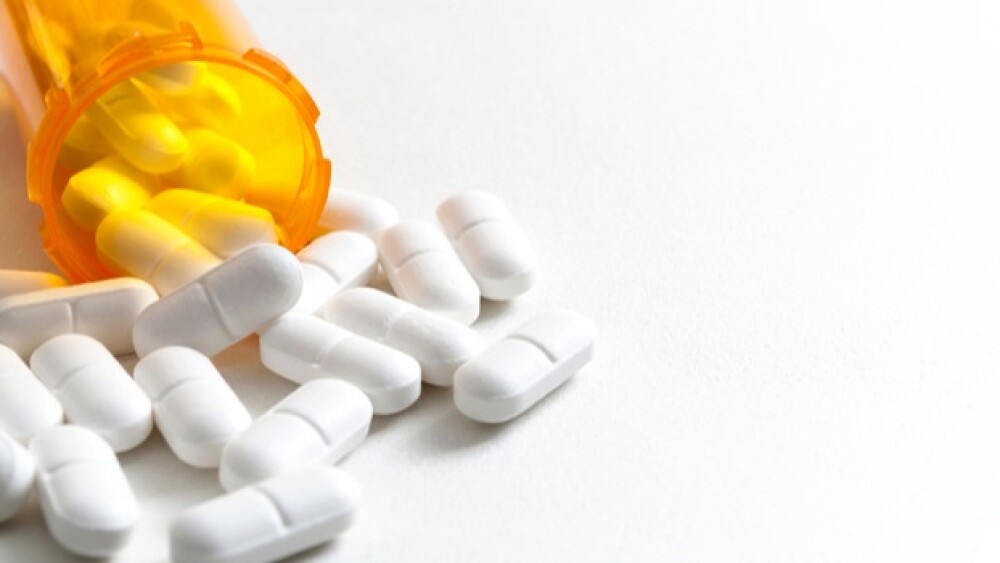In response to the opioid crisis, particularly as the federal government cracks down on opioid use, physicians are increasingly using non-opioid therapeutics off-label in response. This has at least some physicians and one pharma company concerned.
Original publication date: August 1, 2018
In response to the opioid crisis, particularly as the federal government cracks down on opioid use, physicians are increasingly using non-opioid therapeutics off-label in response. This has at least some physicians and one pharma company concerned.
The National Institute on Drug Abuse, part of the National Institutes of Health (NIH), indicates that more than 115 people die from opioid overdoses in the U.S. It also claims that 21 to 29 percent of patients who are prescribed opioids for chronic pain misuse them, with 8 to 12 percent developing an opioid use disorder. From July 2016 through September 2017, opioid overdoses increased 30 percent in 52 areas in 45 states.
The New York Times cites an inflammatory drug made by Pfizer called Depo-Medrol as an example of non-opioid therapeutics. It’s designed and approved for injection into muscles and joints, but “doctors have long given Depo-Medrol shots, or the generic equivalent, close to the spinal cord for painful backs, necks and conditions like spinal stenosis.”
Pfizer was concerned enough, based on hundreds of complaints regarding injuries and complications from the injections, to ask the U.S. Food and Drug Administration (FDA) to ban that form of treatment five years ago. The FDA declined, but made the label warning tougher. However, a number of countries, including Australia, Brazil, Canada, France, Italy, New Zealand and Switzerland complied with Pfizer’s request.
Injections declined. But now, The Times reports, “the opioid epidemic appears to be spurring their popularity despite risks known to public health officials and doctors.”
Back problems, according to the FDA, are the leading cause of chronic, debilitating pain. The House of Representatives gave the thumbs-up for an increase in Medicare reimbursement for the spinal injection procedure, and Medicare reports an increase in the procedures of 13 percent from 2012 to 2016, and Medicare beneficiaries receiving the injections increasing 7.5 percent. The Department of Veterans Affairs cited a 17 percent increase from 2015 to 2017.
And according to the IQVIA Institute for Human Data Science, total sales of brand name and generic Depo-Medrol increased 35 percent to $185 million from $133 million from 2015 to 2017.
Andrew Colony, co-director of opioid policy research at Brandeis University, told The New York Times, “The victims of our era of aggressive opioid prescribing are being exploited in some cases by interventional pain doctors, who will continue them on opioids in exchange for allowing them to perform expensive procedures that they don’t need. These are not benign procedures. Patients can be harmed and are harmed.”
Meanwhile, biopharma companies are working to develop non-opioid drugs or opioid formulations that decrease the likelihood of addiction and abuse. In mid-May, the FDA approved Lucemyra (lofexidine hydrochloride), which is manufactured by Britannia Pharmaceuticals and licensed to U.S. WorldMeds. It has been available in the UK for years, for the mitigation of opioid withdrawal symptoms. In the U.S., it is only approved for up to 14 days and only lessens the severity of withdrawal symptoms, not completely prevents them.
“As part of our commitment to support patients struggling with addiction, we’re dedicated to encouraging innovative approaches to help mitigate the physiological challenges presented when patients discontinue opioids,” said FDA Commissioner Scott Gottlieb in a statement at the time. “We’re developing new guidance to help accelerate the development of better treatments, including those that help manage opioid withdrawal symptoms.”
Click here to see thousands of life science jobs on BioSpace’s job board.





